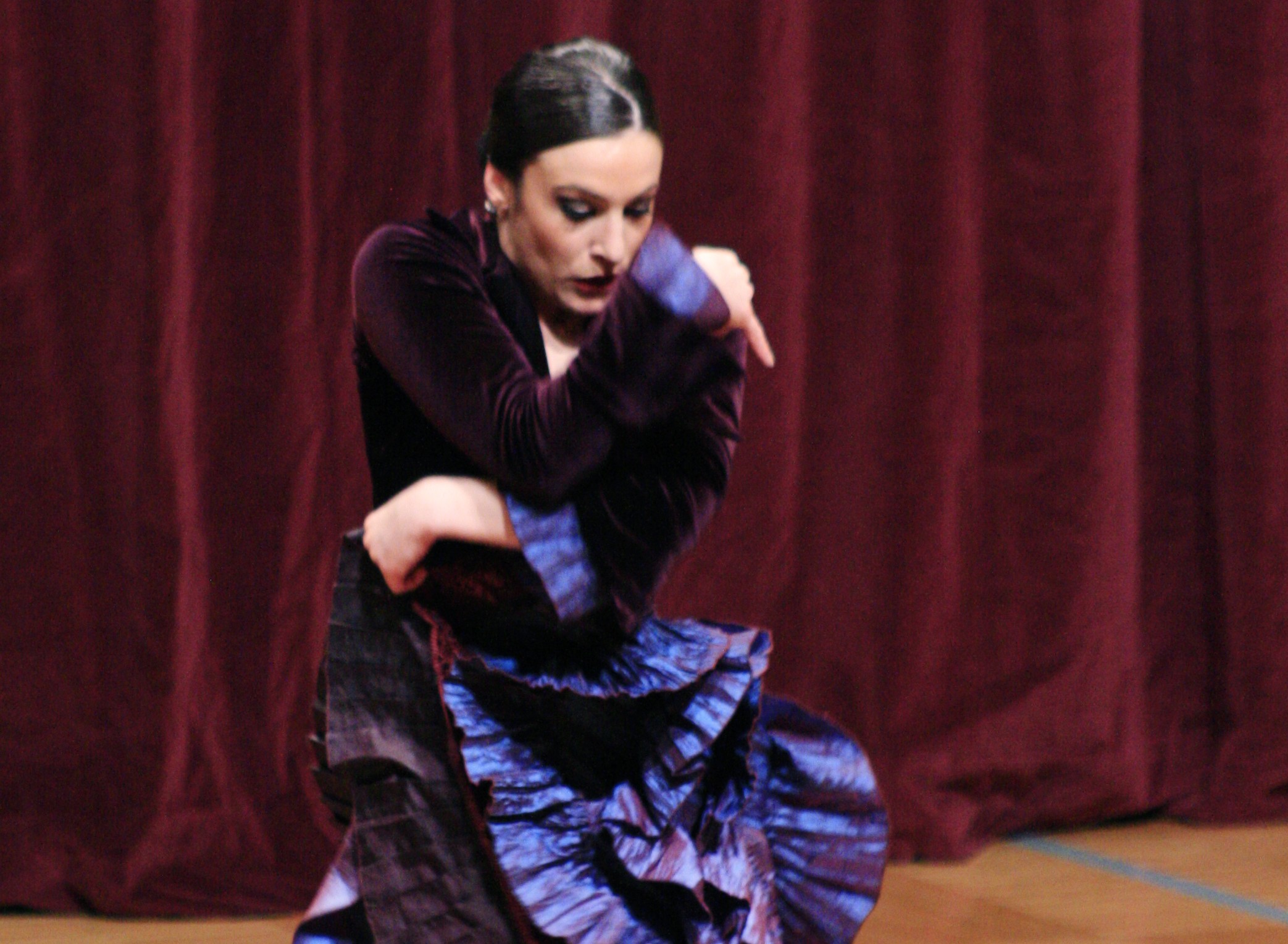
Stepping into Memorial Auditorium the night of Jan. 26 was like stepping into a whole other country—Spain, to be specific. The Flamenco Vivo dancers from New York spun, stomped and clapped to the tune of live musicians for an excited audience of Concordia students and community members. Bringing an authentic Spanish Flamenco group to campus was not only important to the organizers of Cultural Events, but also to many Concordia students.
Eric Runestad, director of Cultural Events, said the Performing Arts Series that brought Flamenco Vivo to campus was focused on international events this year, since the Concordia Language Villages are celebrating their 50th anniversary and global programs are so strong on this campus. Other events that are part of the Performing Arts Series this year include the Golden Dragon Acrobats, the Yuval Ron Ensemble and Fubuki Daiko.
“Learning about different cultures and different people is essential,” Runestad said. “The world is not only getting smaller, but also more diverse. The more we understand about each other, the greater our ability to see that our differences are important and valuable to our future.”
Kaitlin Weis, a senior Spanish education major, and Kristen Mages, a junior Spanish and communications major, were both glad to see the Spanish culture represented. After studying abroad in Spain last year and seeing Flamenco dancing abroad, it was fun to see the dancing again and be reminded of their semester abroad, they said.
“Seeing the show brought back memories of actual images in my mind from my study abroad experience,” Weis said.
Mages agreed.
“It totally made me want to go back to Spain,” she said. “I really liked how it included Spanish in the program and history.”
Weis saw a Flamenco show while she was abroad in Sevilla, Spain, in the region of Andalucia, where Flamenco originated. She said watching the dance was one of her favorite moments in Spain.
“The atmosphere was different in Sevilla,” she said. “It was really up close, where as here you are watching from a distance. It’s a somewhat different experience, but otherwise very similar.”
Mages also noticed a few differences from the Flamenco Vivo dancers to the Flamenco dancing she saw in Pamplona, Spain, but not enough to disappoint.
“When we were in Spain we saw Flamenco dancing, but this was bigger,” she said. “I’d say this was even better. If not better, definitely comparable.”
Julia Chacón, one of the dancers with Flamenco Vivo, said there were many reasons she personally believes it is important to keep the Flamenco tradition alive.
First, she said that she is internally drawn and moved to the art form of Flamenco. Second, she enjoys sharing it with other people.
“I think it’s an important tradition to preserve. Whether one is of Spanish heritage or not, there is something to be learned from Flamenco,” Chacón said.
She compared the dance to a melting pot, since Muslim, gypsy, Arabic, Jewish and Christian cultures all have an influence on the Flamenco tradition.
Chacón went on to say that the founder of Flamenco Vivo, Carlota Santana, believes in the power of Flamenco to create a bridge cross-culturally. Flamenco is continually evolving and adapting new cultures, which is why Chacón said Flamenco Vivo blends tradition with innovation.
“Flamenco today includes a lot of American and jazz influences,” she said. “It’s different today than it was 60 years ago.”
Traditional Flamenco dancing involves only a singer, a guitarist and a dancer.
“We are more theatrical. More contemporary,” Chacón said.
In recent years the Performing Arts Series has partnered up with Campus Entertainment Commission in order to cater to the interests of Concordia students. Since 2007, student attendance at Performing Arts Series events has more than doubled. However, providing opportunities for the community is still important, Runestad said.
According to Runestad, about 420 community members came to the Flamenco Vivo performance on campus, including 60 area high school students.
Mages said high school students and community members do not have the same opportunities to go abroad as college students do, and Concordia’s programming allows people to experience a different culture without having to leave the country or spend thousands of dollars.
“It really helps to open people’s eyes to traditions in other countries,” she said.
Mages hopes the Performing Arts Series continues to bring in more international acts.
“Maybe tango or salsa, something from India, ballet dancing, or maybe the African children’s choir,” she said.

